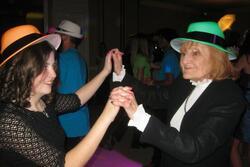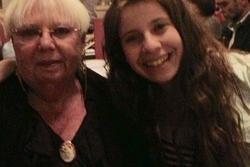Empowerment 101
Throughout my life the word “feminist” has come to take on many meanings. It’s a word I’ve both heard and used infinite times growing up in the heart of one of New York City’s most politically liberal neighborhoods. Now, the very word “feminism” is one that brings gratification. However, by the time I reached the ever-menacing years of high school, I knew that the sense of affinity that came with the word “feminist” was not shared by the general whole of the New York high school students. Quite frequently, I hear my peers prefacing their political views or observations with “I’m not a feminist or anything, but…,” as if being a feminist is something completely outrageous or outdated. Do they mean to say… I don’t want to be mistaken for someone who doesn’t like men? Or for someone who’s protesting the status quo? This contorted misconception of what feminism is has led to an environment where the very word “feminist” has evolved into something egregious. Being a feminist means speaking honestly and courageously, asking hard questions, speaking up and speaking out. This act can manifest itself anywhere from Capitol Hill to the everyday American classroom.
We need feminism to mend the wounds of corruption that engulf our American education system. My informal education, the home where I grew up, is inherently a “feminist household.” I have two strong mothers who are powerful and self-confident in their work and home lives, and have raised me to feel the same way about myself. I have a sister who attends a women’s college (no, it’s not a “girl’s” school), has delved into women’s studies, and is constantly helping my “enlightened” family be even more aware, and more conscious about the small nuances in power relationships, language, class and racial issues. I’ve grown up in the era of growing awareness of sexual boundaries, boundary crossing, and new definitions of consent. I’ve grown up down the street from Columbia University where a young woman spent most of her senior year walking around with a mattress strapped to her back to illustrate her truth.
Just last year, Emma Sulkowicz could be spotted in my neighborhood, holding a fifty-pound mattress. Sulkowicz was a senior at Columbia when she launched the “Carry That Weight” project as a part of her final thesis. The mattress Sulkowicz carried was a Columbia University dorm mattress, and this action signified the emotional weight that comes as a result of being raped. This prominent issue is one facing hundreds of young women on college campuses nationwide.
Last year was not my first time encountering rape-victims. However, Sulkowicz’s story resonated with me as it brought an inherent feeling of uneasy closeness. It was shocking to realize Sulkowicz’s rape occurred only a few blocks from my home. It was even more shocking to realize that this experience is one shared by so many girls close in age to myself. This raised the question of how I’m supposed to explore colleges when they’re characterized by men mistreating women’s bodies to a loathsome extent. More importantly, women had to fight a long and difficult battle to gain equality in academic settings, and it’s disheartening to come to terms with the fact that this perceived equality may be broken, at least as it pertains to issues like these.
Even before college entered my mind, feminism was always a part of my academic life. I grew up attending a progressive lab school where I was one of many students with gay or lesbian parents. This setting fostered a love for social justice and freedom of expression in any form it may take. This is why I was far too old when I learned about the girls next door who were “dress coded” on a monthly basis. These girls grew up with their personal value as young women measured in units of inches above the knee.
We need feminism for the female students of tomorrow. If we fight hard now, these students will possibly live in a society free from sexist dress codes or threats that come with the weight of a fifty-pound mattress. These girls will be subconsciously empowered. Although I grew up in a conventionally progressive environment, I had to discover the feminist movement for myself. I had to open my eyes, see the prejudice around me, and teach myself how to make a difference. The students of tomorrow will not have to teach themselves the way I, and many others did. These students, young men and women alike, will never need to question why they need feminism- for it will be embedded in their subconscious. Today, we need feminism to ensure a brighter future in an age of equality, an age in which empowerment is no longer something one should have to teach or learn.
This piece was written as part of JWA’s Rising Voices Fellowship.







